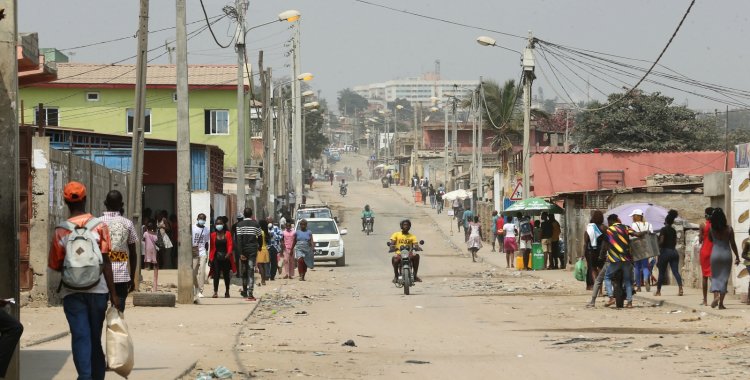"In 2017, our economy was not doing well, the level of indebtedness was quite high and, as if that wasn't enough, soon after came this pandemic that affected everyone. But I must say that, despite the pandemic, Angola is do well," said João Lourenço, in a virtual debate with Marcelo Rebelo de Sousa, within the scope of the Euro-Africa Forum.
"We made an agreement with the International Monetary Fund, which will end now, in December of this year. We are satisfied with the results of this same agreement, and we think that the IMF, in the same way, is satisfied. And the trend is, in principle, is for our economy to start growing as of next year," said Lourenço.
However, he safeguarded: "It will grow faster the sooner we get out of this covid-19 situation."
With regard to the fight against the pandemic, the head of state pointed out that the country has already gone through several phases "in which it has done well". But he is "now at that stage where victory will be achieved" if he can "vaccinate as many citizens as possible," he stressed.
"We have vaccinated about a third of the country's population eligible to get the vaccine", he said, adding that the population covered "is 20 million inhabitants, of which exactly 5,544,226 citizens are vaccinated with at least one dose, and of these, 1,330,301 already have both doses".
"Therefore, we are very far from reaching the level of satisfaction", acknowledged João Lourenço.
The President recalled that the goal set by Angola was "to vaccinate around 60 percent of the eligible population by December this year", considering that the rest of the path would be to go "in the first quarter, or perhaps throughout the first semester of the next year".
The debate between the Portuguese and Angolan Presidents of the Republic, in digital format, was the high point of the 4th edition of the Euro-Africa Forum, which began on Wednesday and ended this Friday, in an initiative of the Portuguese Diaspora Council, chaired by António Calçada.
The Portuguese Diaspora Council is a Portuguese global network founded in 2012 and whose main objective is to enhance the brand, image and reputation of Portugal. It currently has 90 advisers, who work in different fields, from culture to economics, passing through citizenship and science.
These advisors are spread across 27 countries, 47 cities and five continents.
The debate focused on cooperation between Europe and Africa, and on economic relations between the two continents.
The forum's agenda included seven panels: Economic Perspectives for Europe and Africa after the Free Trade Agreement, Digital Work and Digital Platforms and Technologies, The Digital ID Revolution, Paving the Way for Green Growth and Inclusive Transitions, Culture and Market, and Media and Digitization.
Among the speakers were businessmen, activists, leaders, public and private decision makers, and other actors who contributed to the dialogue between Africa and Europe.







